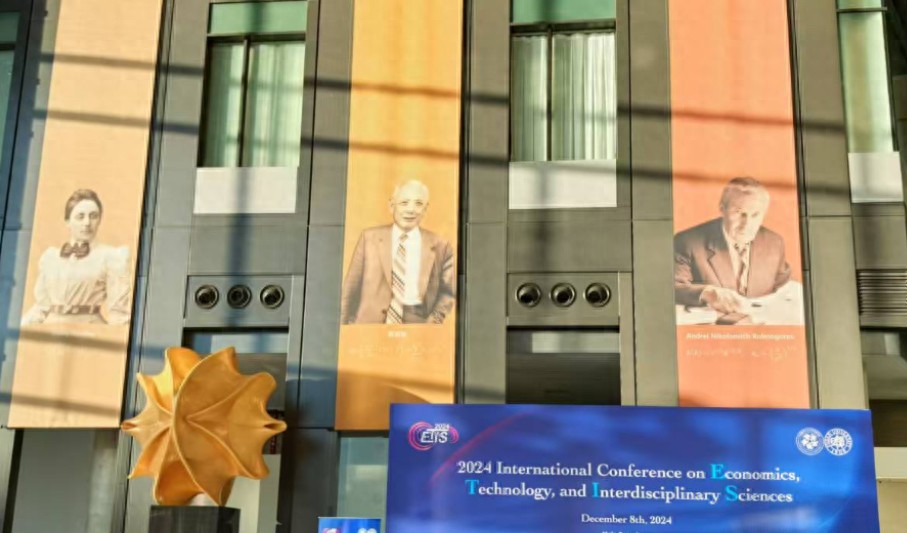How AI Transforms Research Paradigms
Advertisements
The rapid advancement of artificial intelligence (AI) is not merely transforming technology but also reshaping the landscape of scientific research through an unprecedented era of interdisciplinary collaboration. The integration of various fields fueled by AI and big data is redefining research paradigms, offering novel avenues for discovery and innovation.
Among the leaders in this shift is Shing-Tung Yau, a renowned mathematician and Fields Medal laureate, who recently emphasized the importance of these interdisciplinary connections at the International Summit on Economy, Technology, and Cross-Disciplinary Research held at the Shanghai Institute of Mathematical Sciences. He highlighted that the current era, marked by the swift rise of data analytics and AI, is witnessing a significant increase in the number of scientists and engineers in China. The advancements made by these professionals are fundamentally altering the global map of scientific exploration.
In a compelling illustration of this point, Yau pointed out the role of mathematics in the domains of AI and big data. Mathematics serves not only as the backbone of algorithms and technological infrastructure but also as a crucial instrument for decoding the deeper meanings embedded within vast datasets. Concepts once considered abstract in mathematics are now deployed as practical tools designed to unravel complex challenges across science, technology, economy, and society. This profound shift underscores how theoretical mathematics has transcended its traditional boundaries to empower empirical research and application.

Professor Qi Yuan, the director of the Shanghai Institute of Scientific Intelligence and an honorary professor at Fudan University, further illustrates this narrative. In a recent interview, he remarked on the intertwining of AI and scientific inquiry, likening their collaboration to a dual-helix structure. Generative AI is epitomized as a groundbreaking discovery akin to the dawn of a new golden age, emphasizing its dual role as both a scientific endeavor and a critical engineering pursuit. he argues, “Artificial intelligence itself encapsulates scientific knowledge whilst also presenting an engineering challenge. The successful deployment of AI today hinges on the integration of large-scale data systems and computational power.”
AI has already made notable strides across various fields of research. One of its landmark achievements is AlphaFold, a sophisticated algorithm that garnered the Nobel Prize in Chemistry this year for its contributions to protein folding predictions. Furthermore, DeepMind has pioneered the application of AI in controlling plasma shapes within tokamak devices for nuclear fusion, showcasing the technology's capacity to influence revolutionary scientific breakthroughs.
Universities, particularly Fudan University, are at the forefront of driving AI initiatives under the umbrella of "AI for Science" or AI4S, where the potential of AI is harnessed to advance scientific research. The Shanghai Institute of Scientific Intelligence, partnered with Fudan University, is developing extensive scientific databases to support diverse research domains. These endeavors are designed to bolster academic inquiry and facilitate practical applications across various sectors.
Qi emphasized applications targeting industries such as renewable energy, air transportation, and urban management. The Fuxi series of meteorological models, underpinned by AI technology, promises significant enhancements in weather forecasting accuracy. Likewise, the Nuwa medical model has achieved breakthroughs in analyzing lengthy DNA sequences and dynamic protein modeling. This model is also poised to enter a partnership with enterprises to develop RNA-based models, which will aid in predicting RNA structures and their functionalities, expediting the development of RNA vaccines, and enhancing nucleic acid drug design.
When looking towards the future of Artificial General Intelligence (AGI), Qi articulated a bold vision: “One of the pinnacle goals of AGI is to unveil previously unknown laws governing the physical world through artificial intelligence. Current large-scale models predominantly depend on data, yet many unknown dynamics lack sufficient data to support them. For AI to reach its highest capabilities, it must learn to operate independently of such dependencies, enabling it to reason and uncover these unknowns—a mission that aligns seamlessly with the aspirations of AI for Science.”
He believes that the next phase of AI for Science involves synthesizing existing knowledge with new data to create an AI equivalent to Einstein, capable of exploring innovative models and discovering the hidden rules of the physical universe.
In a broader academic context, Qi noted that universities possess a distinct advantage: they house talented individuals. “Talent is the foremost driving force in production; it holds more value than simply having numerous graphics processing units,” he shared. He emphasized that fostering fresh ideas among bright young thinkers is crucial for AI advancements and overall technological evolution in various sectors.
Researcher Cheng Wei from the Institute of Brain-like Intelligence and Technology at Fudan University echoed this sentiment. He pointed towards the application of AI in brain science research as a critical area of focus in recent years. Through interdisciplinary integration, they have unveiled biomarkers of brain aging and elucidated their evolutionary patterns. This groundbreaking work offers new scientific insights and technological pathways for addressing aging-related diseases, showcasing significant clinical implications.
The convergence of AI and scientific inquiry signals that we are standing on the threshold of unprecedented opportunities. By leveraging the mathematical foundation of AI and pushing the boundaries of interdisciplinary research, scientists and engineers are not just innovating but are actively redefining the very essence of research itself. As AI evolves and integrates deeper into scientific exploration, it holds the potential to unlock countless mysteries of the universe, augmenting our understanding of the intricate systems that underpin life and industry.
Leave a comment: